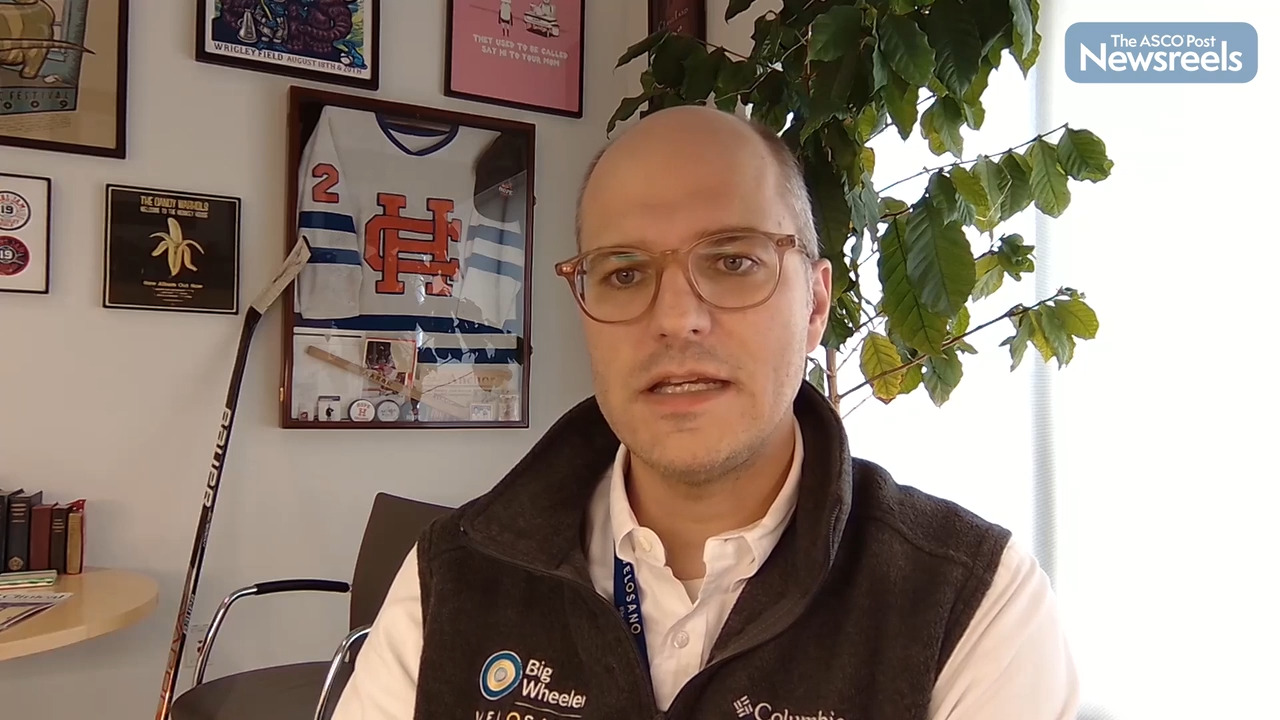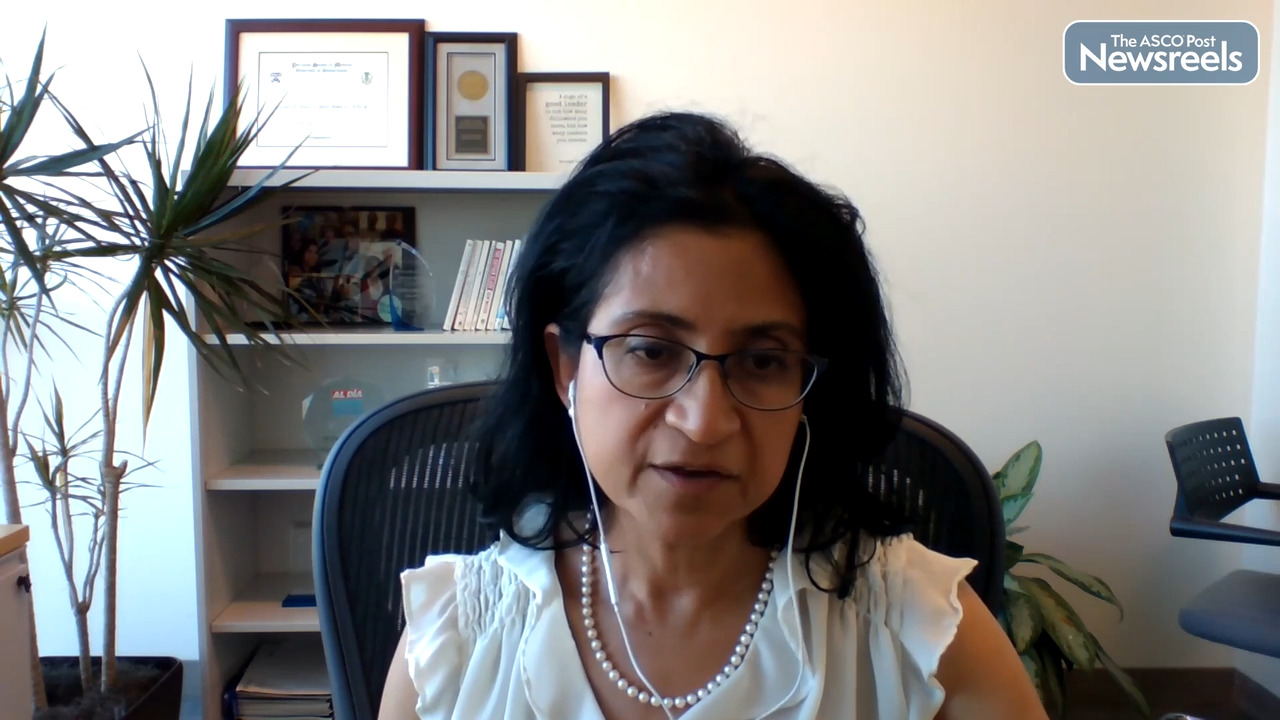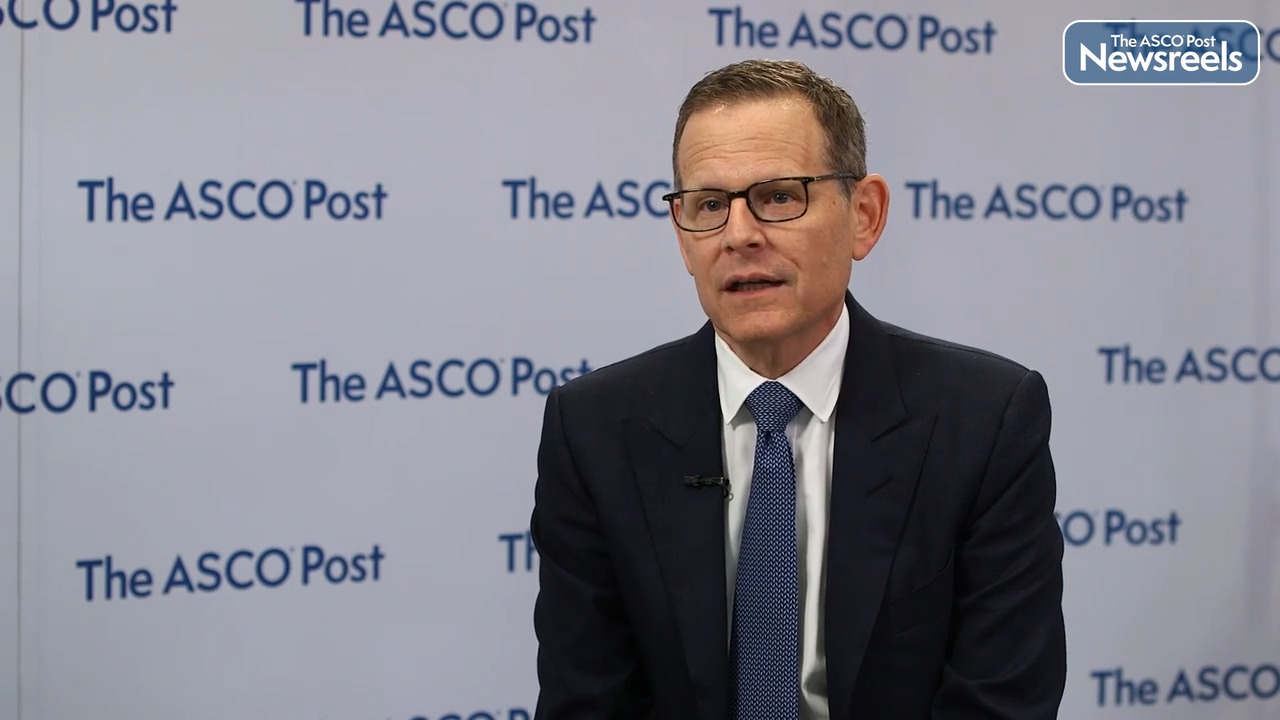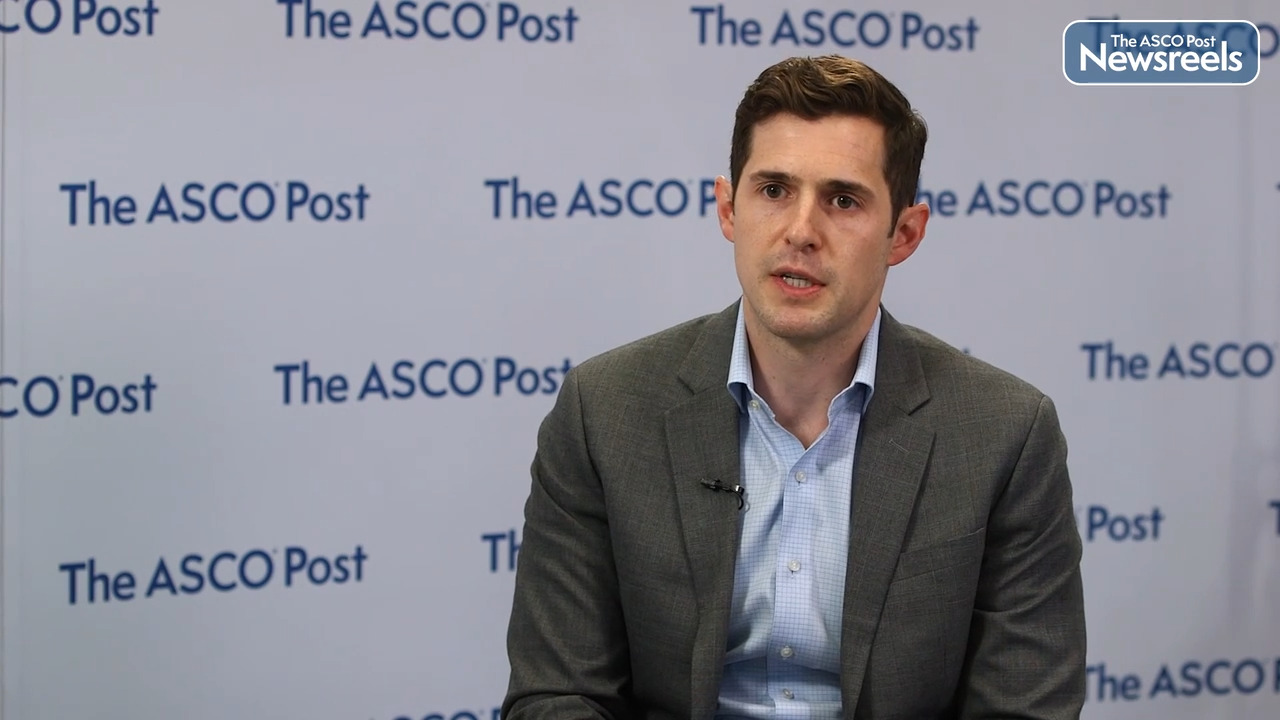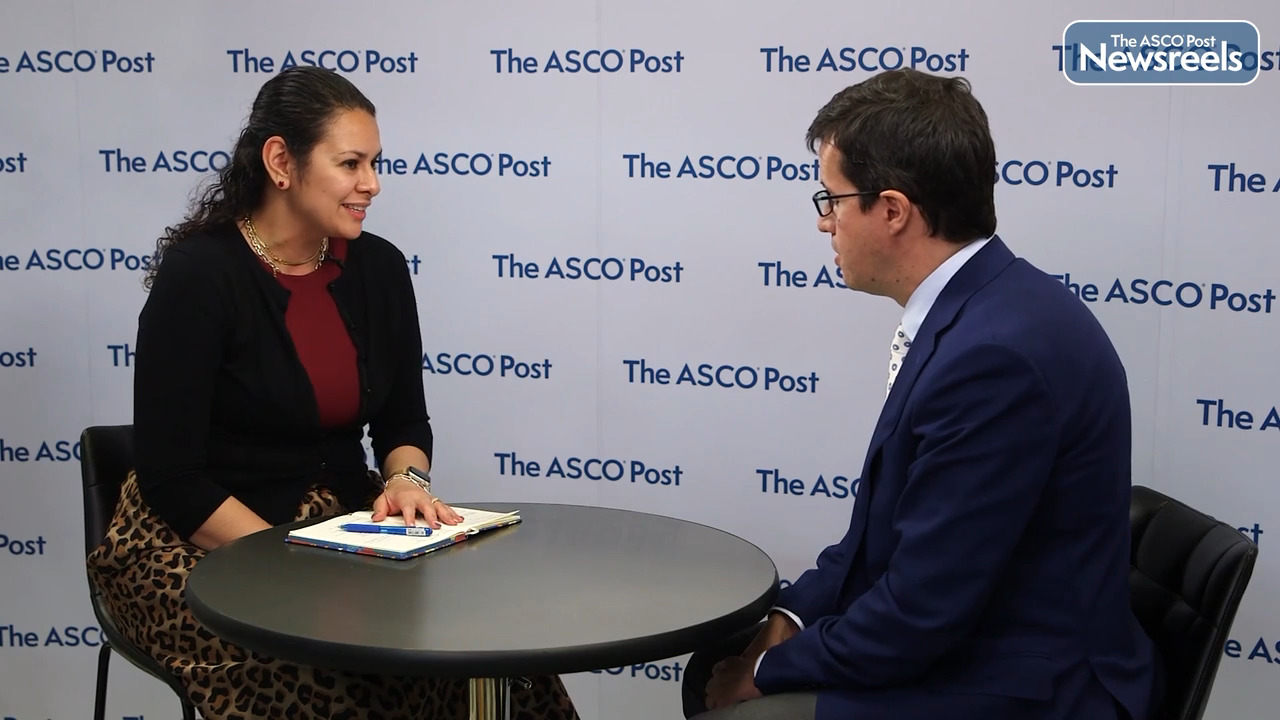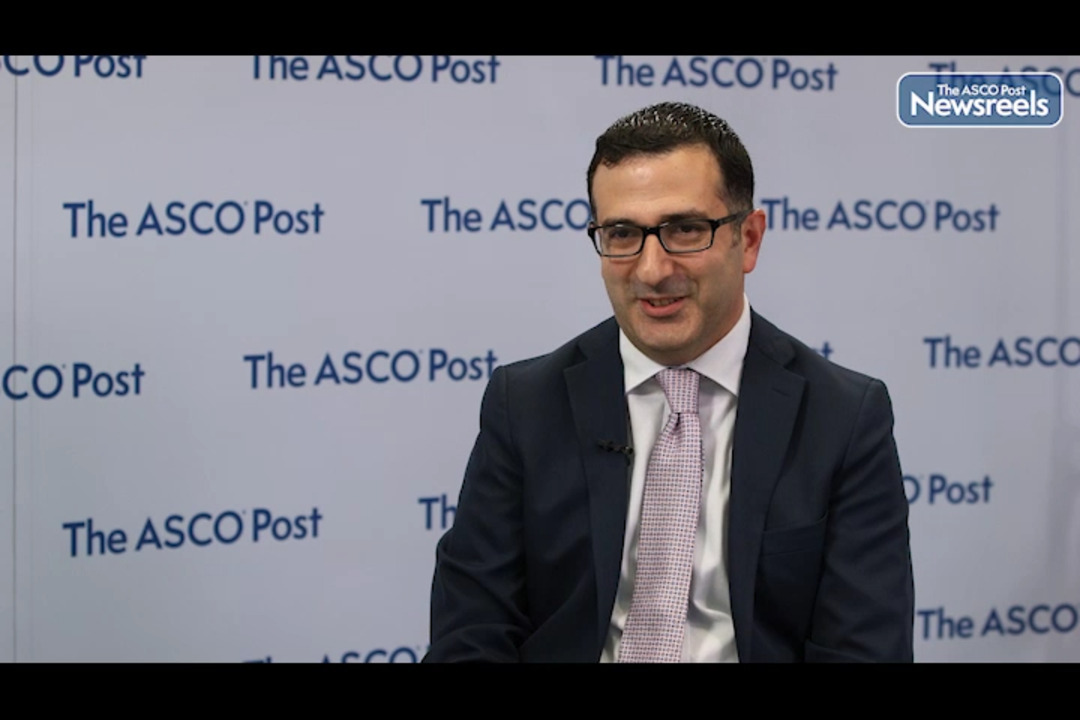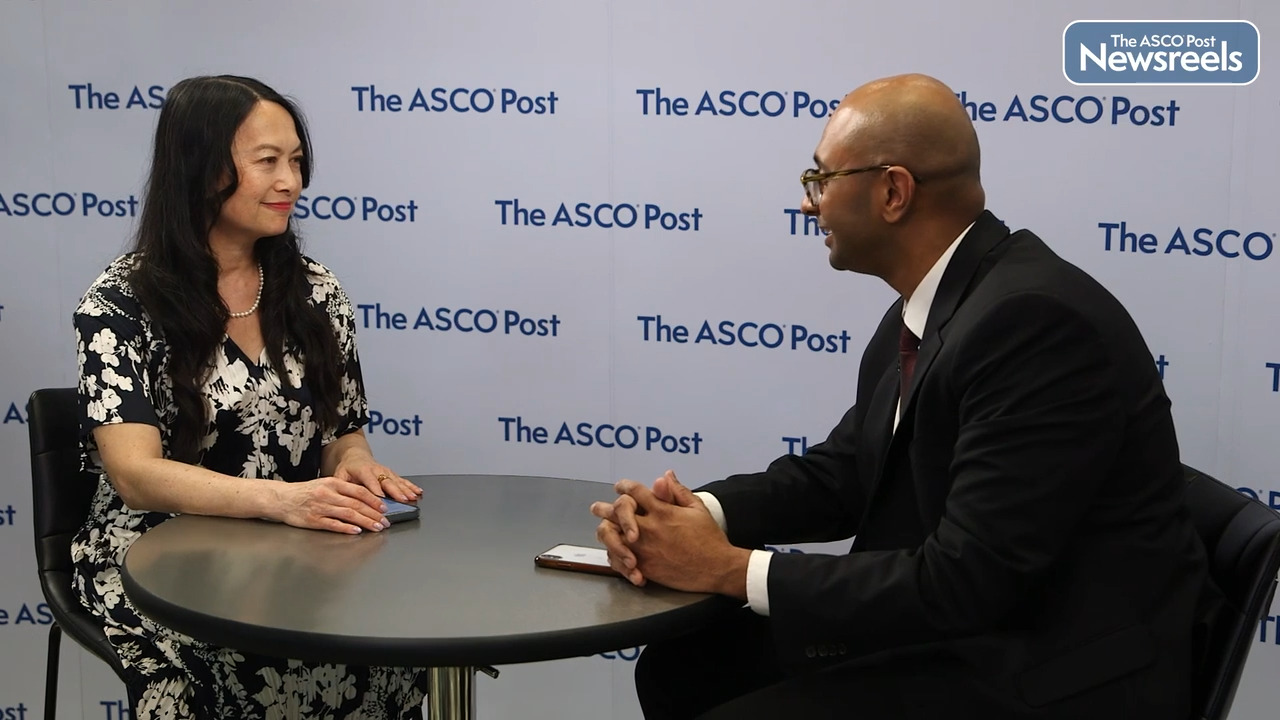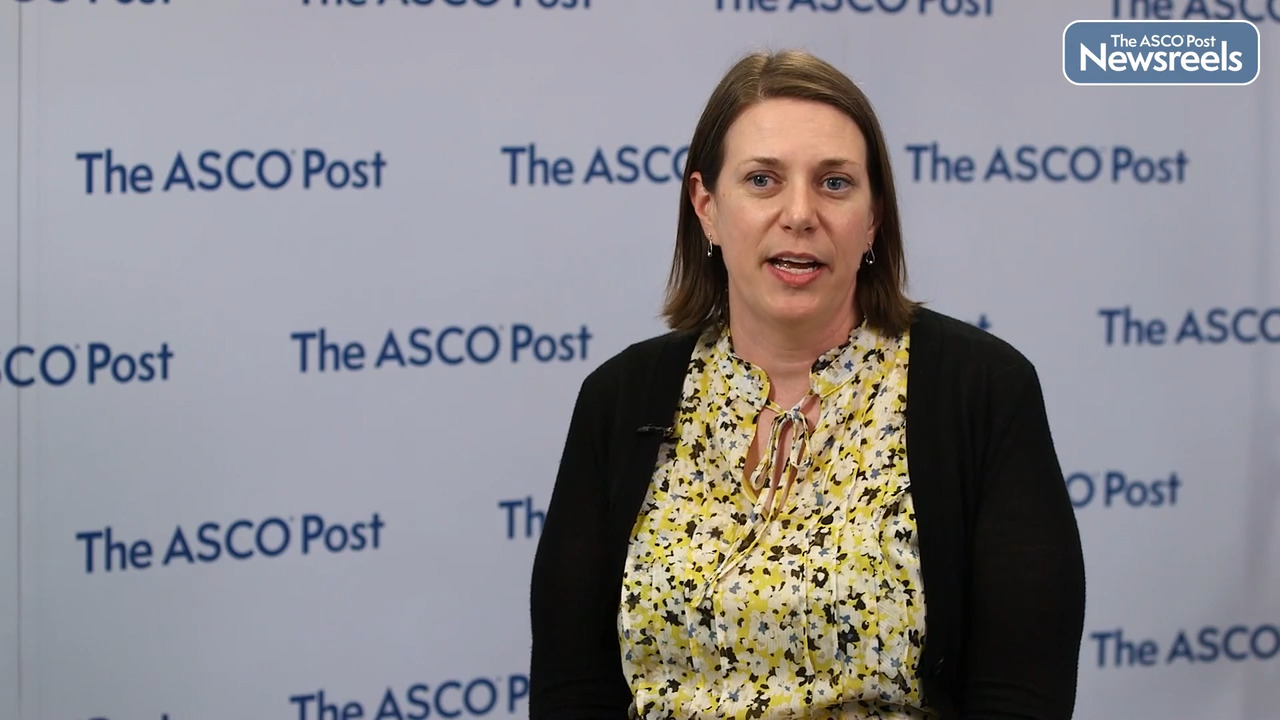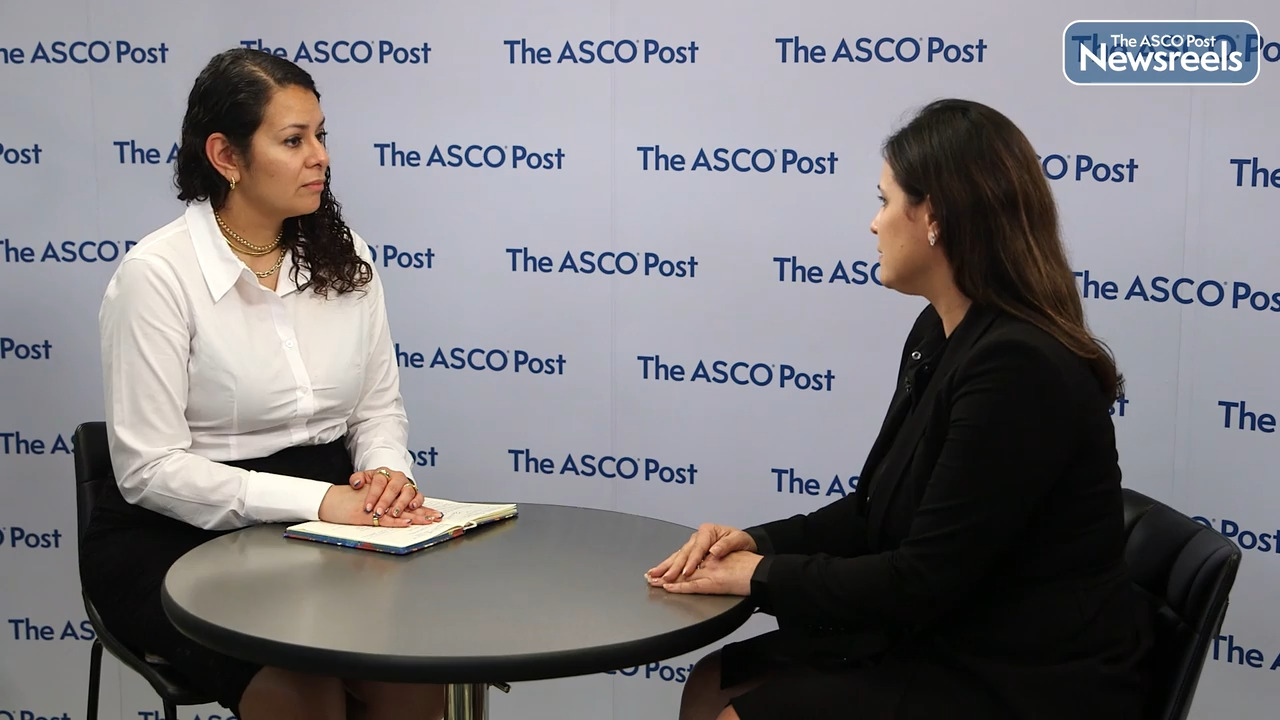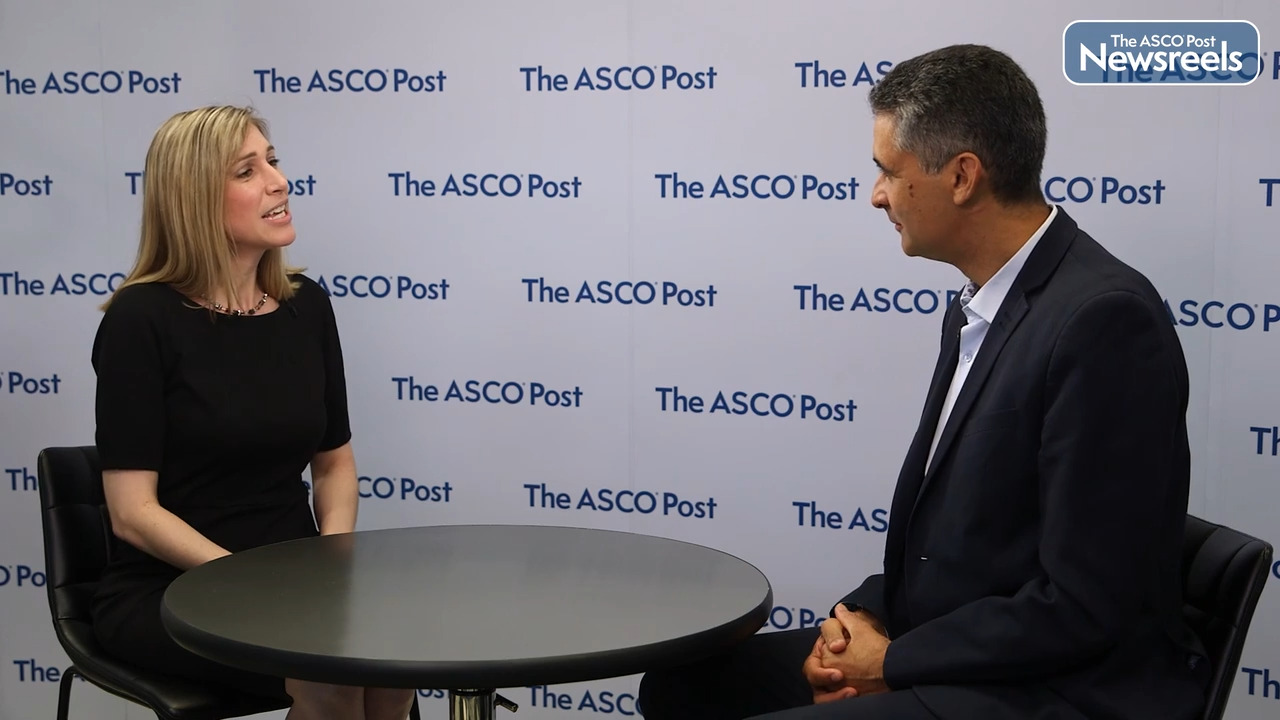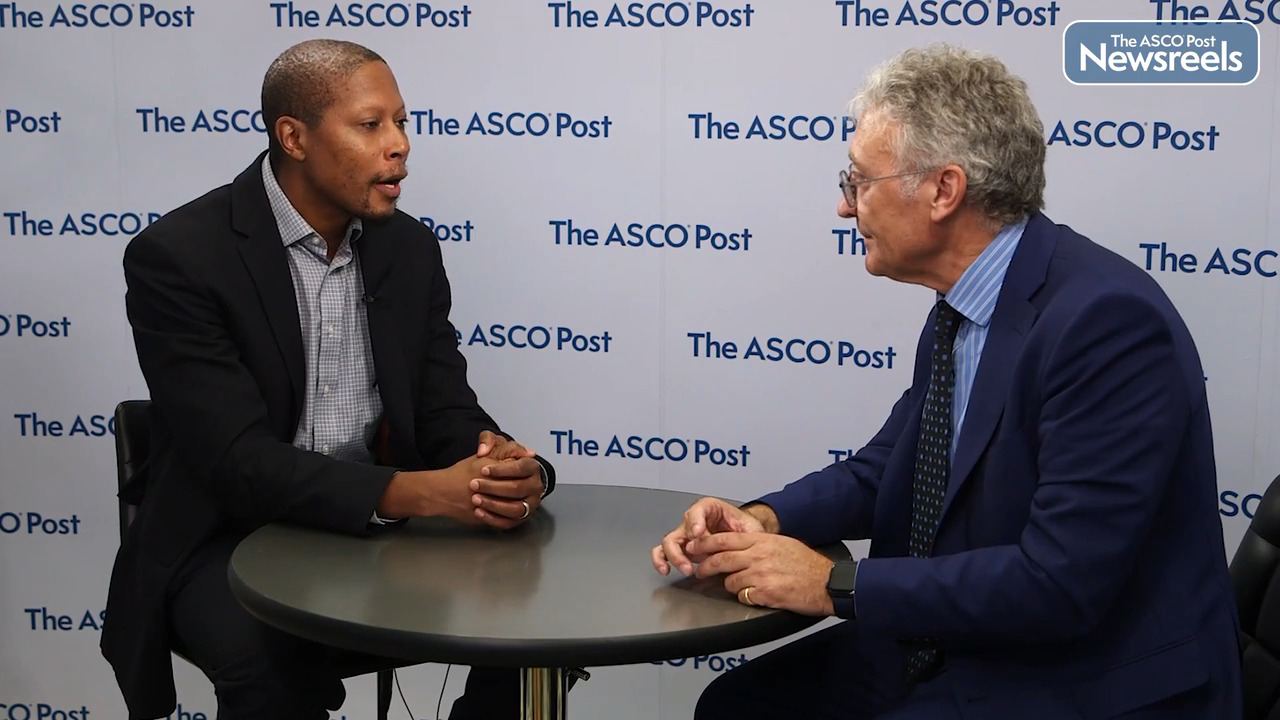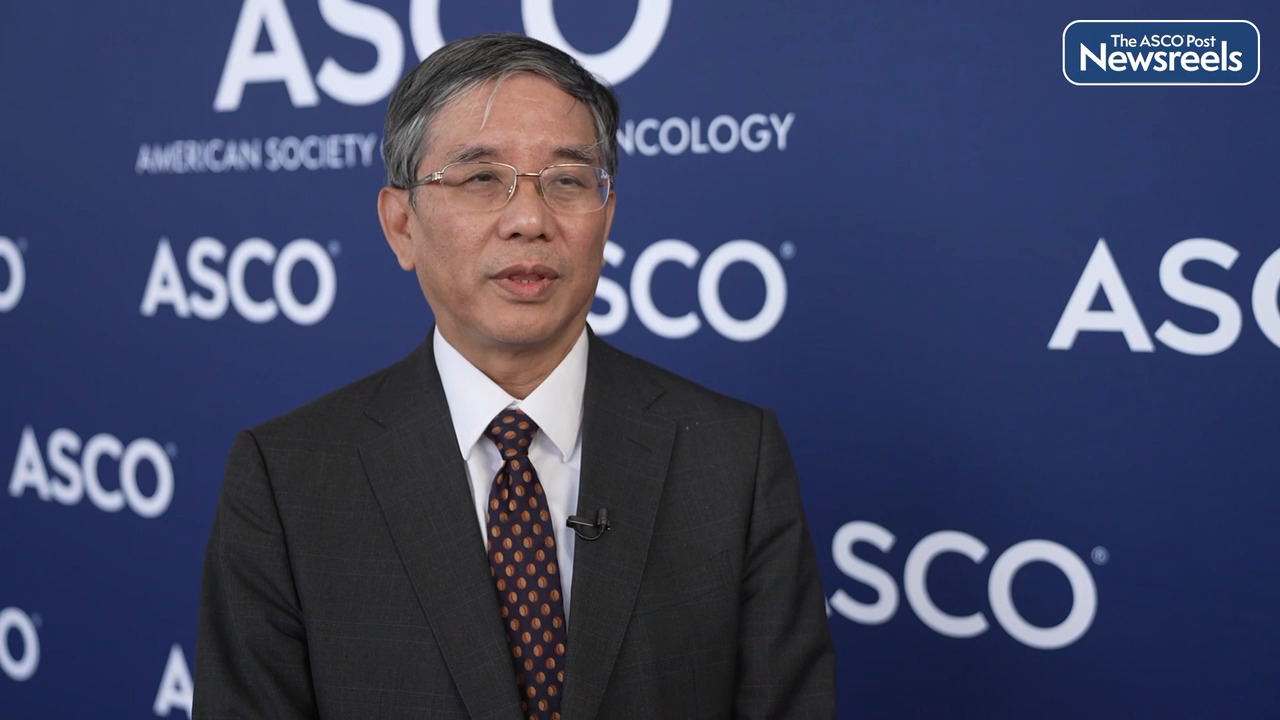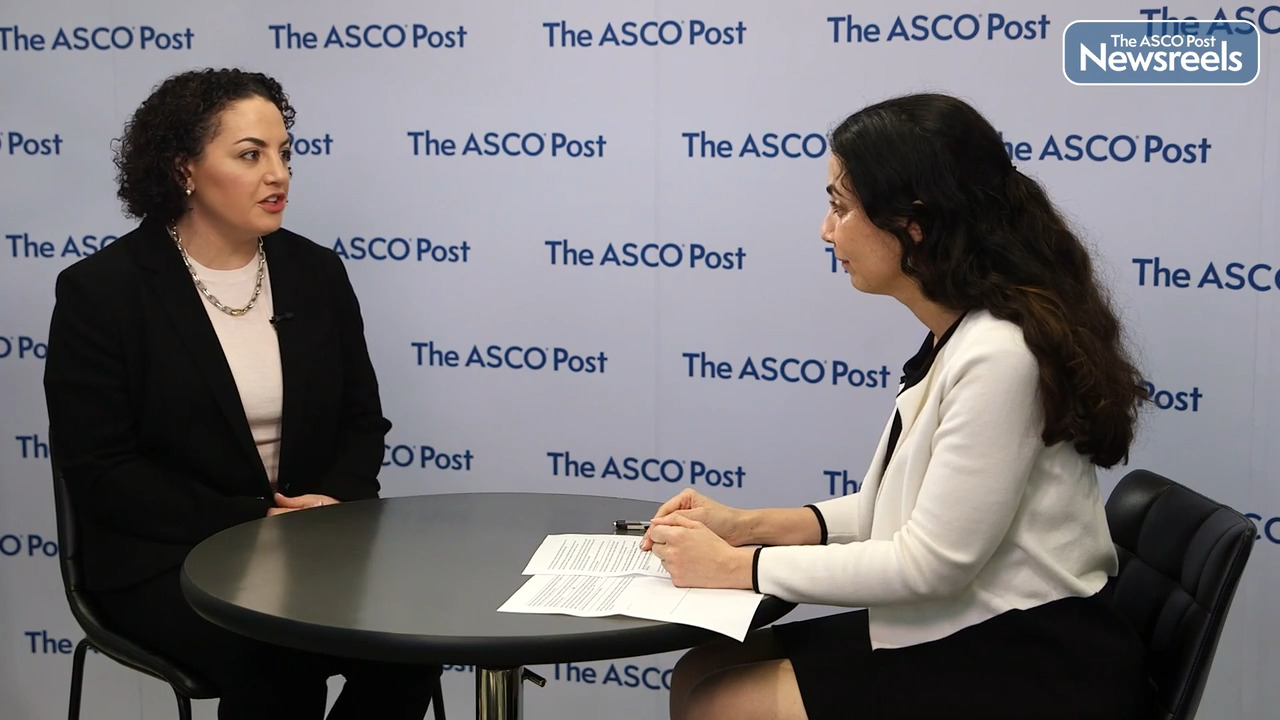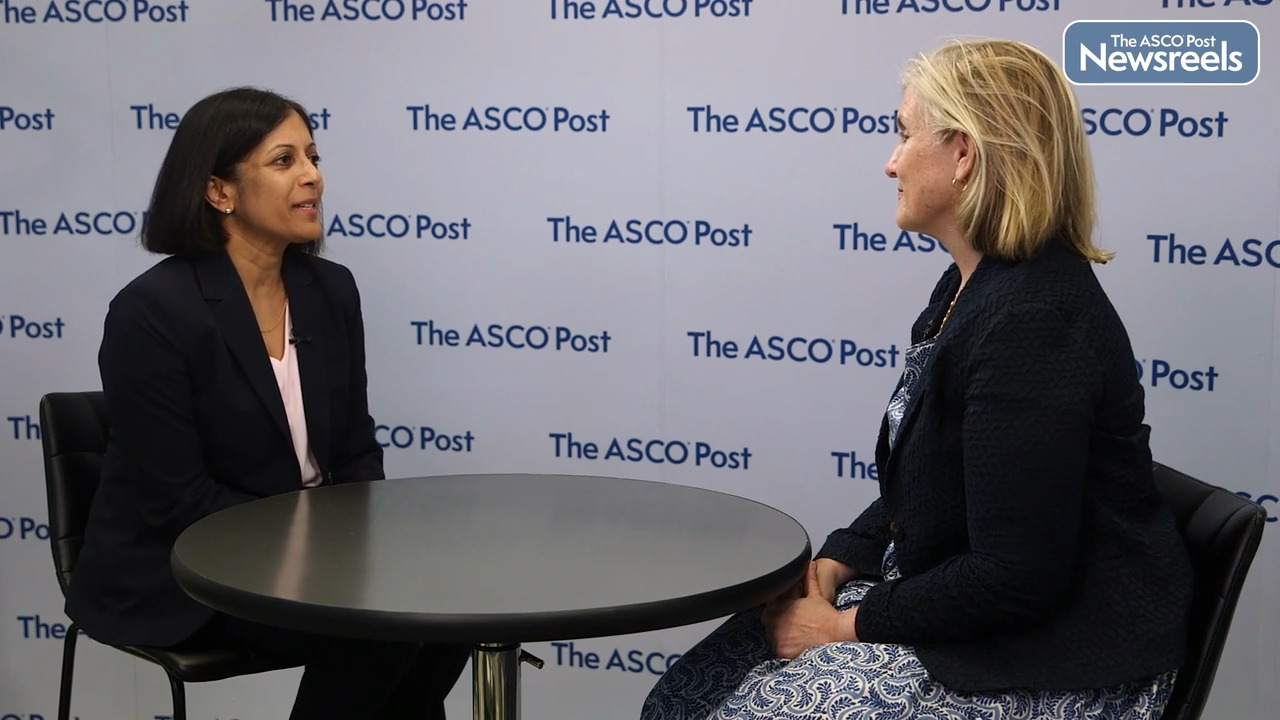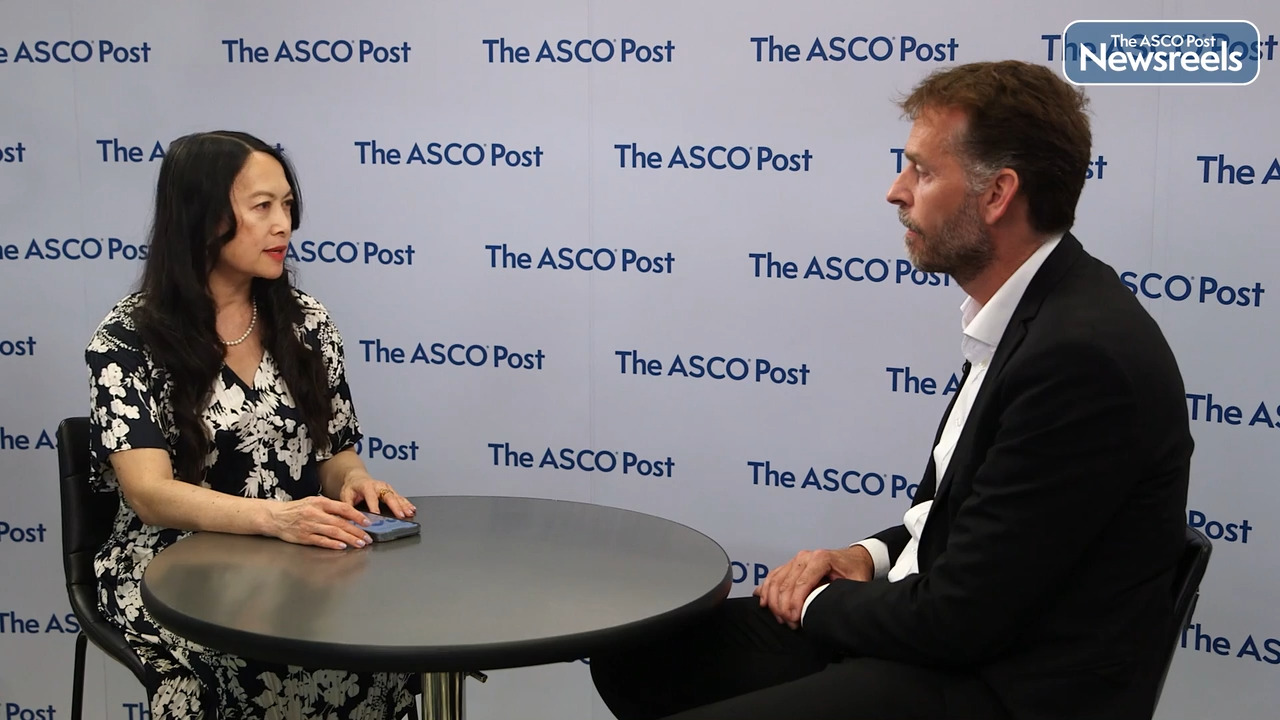2023 ASCO Annual Meeting
Expert Point of View: Barbara Burtness, MD
Barbara Burtness, MD, the Anthony N. Brady Professor of Medicine and Chief Translational Research Officer at Yale Cancer Center, New Haven, featured the CONTINUUM study at the head and neck cancer ses...
CONTINUUM: In Locally Advanced Nasopharyngeal Cancer, Addition of Sintilimab to Chemoradiotherapy Offers Benefit
The addition of the PD-1 inhibitor sintilimab to standard induction chemotherapy and chemoradiotherapy resulted in a significant improvement in 3-year event-free survival, a manageable safety profile,...
Expert Point of View: Kevin Kalinsky, MD, MS
Session co-moderator Kevin Kalinsky, MD, MS, the Louisa and Rand Glenn Family Chair in Breast Cancer Research, Director of the Glenn Family Breast Center, and Director of Breast Medical Oncology at th...
PHERGain: Adapted-Response Trial Guides Treatment With Dual HER2 Blockade Alone
The phase II PHERGain trial, which employed a response-adapted strategy in the treatment of early-stage, HER2-positive breast cancer, has shown promising results for the selective use of HER2 blockade...
Expert Point of View: Erminia Massarelli, MD, PhD, MS
The invited discussant of the VERSATILE-002 and CUE-101-01 trials, Erminia Massarelli, MD, PhD, MS, said both are examples of a growing interest in evaluating immunotherapeutic strategies and treatmen...
Novel HPV-Targeted Agents Boost Efficacy of Pembrolizumab in Head and Neck Cancer, Two Studies Show
Immunotherapeutics that target human papillomavirus (HPV) genotype 16 appear to boost the activity of pembrolizumab in advanced head and neck squamous cell carcinoma. Two examples were presented in po...
A Telephone-Based Weight-Loss Intervention Induced Clinically Meaningful Weight Loss in Patients With Breast Cancer and Overweight or Obesity
Jennifer A. Ligibel, MD, FASCO, Director of the Leonard P. Zakim Center for Integrative Therapies and Healthy Living at Dana-Farber Cancer Institute and Associate Professor of Medicine at Harvard Medi...
Health Systems Strengthening Approach in the United States–Mexico Border Region Improved 5-Year Survival for Children With ALL
The implementation of a collaborative program between North American and Mexican medical institutions to achieve sustainable, high-quality care at a public hospital in the United States–Mexico border ...
ZUMA-7: Primary Overall Survival Analysis Supports Axicabtagene Ciloleucel as Second-Line Therapy in Advanced Lymphoma
In the primary overall survival analysis of ZUMA-7, second-line treatment with axicabtagene ciloleucel significantly improved overall survival compared with high-dose therapy plus autologous stem cell...
CLEAR Trial: Continued Survival Benefit With First-Line Lenvatinib Plus Pembrolizumab in Advanced Kidney Cancer
At extended follow-up, lenvatinib plus pembrolizumab showed sustained superiority over sunitinib for overall and progression-free survival as first-line treatment for advanced renal cell carcinoma.1 T...
DESTINY-PanTumor02: Is T-DXd Heading for Tumor-Agnostic Status?
Fam-trastuzumab deruxtecan-nxki (T-DXd) may prove to be beneficial in a variety of treatment-refractory solid tumors that express HER2, according to findings from the international phase II DESTINY-Pa...
SWOG S1826: Nivolumab Plus AVD Surpasses Standard-of-Care Combination Regimen in Patients With Advanced Hodgkin Lymphoma
The addition of nivolumab, an immune checkpoint inhibitor, to chemotherapy significantly improved progression-free survival in adults and children with advanced classical Hodgkin lymphoma with reduced...
KEYNOTE-671 Trial: Perioperative Pembrolizumab Plus Chemotherapy Improves Outcomes in Stage II and III NSCLC
Neoadjuvant therapy with pembrolizumab plus platinum-based chemotherapy followed by surgery and then adjuvant pembrolizumab led to significantly improved event-free survival in patients with resectabl...
CARTITUDE-4: Ciltacabtagene Autoleucel Beneficial in Early Myeloma Relapse
Compared with the standard of care for relapsed multiple myeloma, a single infusion of ciltacabtagene autoleucel was associated with a significant 74% reduction in the risk of disease progression in p...
PROSPECT Trial: Pelvic Radiation Therapy Avoided for Most Patients With Intermediate-Risk, Locally Advanced Rectal Cancer
Patients with intermediate-risk rectal cancer who received neoadjuvant chemotherapy with selective use of pelvic chemoradiation therapy had disease-free survival that was noninferior to the standard a...
Adjuvant Osimertinib Improves Overall Survival in Resectable EGFR-Mutated NSCLC
The phase III ADAURA trial previously found that adjuvant use of osimertinib improved disease-free survival for completely resected EGFR-mutated non–small cell lung cancer (NSCLC) in patients with sta...
Aaron T. Gerds, MD, on Anemia in Myelofibrosis: New Data on Treatment With Luspatercept
Aaron T. Gerds, MD, of Cleveland Clinic Taussig Cancer Institute, talks about treating the anemia many patients with myelofibrosis experience because of JAK inhibitor therapy. The ACE-536-MF-001 study...
Carmen E. Guerra, MD, MSCE, on Diversity, Equity, and Inclusion in Clinical Trials: Expert Commentary
Carmen E. Guerra, MD, MSCE, of the University of Pennsylvania Abramson Cancer Center, discusses three key abstracts presented at ASCO: strategies to increase accrual of underrepresented populations in...
Medicaid Expansion Associated With a Reduction in Mortality for Black Patients With Gastrointestinal Malignancies
A study investigating the effect of Medicaid expansion on racial disparities in mortality among patients with gastrointestinal malignancies has found that the initiative was associated with a greater...
DUO-O: Benefit Shown for Durvalumab Plus Olaparib in Advanced Ovarian Cancer
In newly diagnosed advanced ovarian cancer lacking a BRCA mutation, the addition of durvalumab and olaparib to standard therapy significantly improved progression-free survival, in a planned interim a...
De-escalation of Surgery Feasible for Selected Patients With Low-Risk, Early-Stage Cervical Cancer
Many patients with early-stage, low-risk cervical cancer may be spared the side effects associated with radical hysterectomy and undergo simple hysterectomy with pelvic lymph node dissection instead, ...
DIPLOMA Trial: Minimally Invasive Distal Pancreatectomy Noninferior to Open Surgery for Early-Stage Pancreatic Cancer
For patients with fully resectable pancreatic cancer, a minimally invasive surgical approach—laparoscopic or robotic—was shown to be comparable to open distal pancreatectomy in the multicenter randomi...
MIRASOL Trial: First Targeted Therapy for Platinum-Resistant Ovarian Cancer to Improve Survival Outcomes
Mirvetuximab soravtansine-gynx, a novel antibody-drug conjugate, significantly improved progression-free and overall survival in patients with platinum-resistant, recurrent ovarian cancers that expres...
Adjuvant Treatment With Ribociclib Reduces Risk of Recurrence in Hormone Receptor–Positive, HER2-Negative, Early-Stage Breast Cancer
The addition of the CDK4/6 inhibitor ribociclib to endocrine therapy significantly improved invasive disease–free survival in women with hormone receptor–positive, HER2-negative, early-stage breast ca...
INDIGO Trial: IDH Inhibitor Improves Progression-Free Survival in Grade 2 IDH1/2-Mutated Gliomas
The oral IDH1/2 inhibitor vorasidenib significantly improved progression-free survival in patients with grade 2 gliomas expressing IDH1/2 mutations in the phase III INDIGO trial. These results, which ...
Shailender Bhatia, MD, on Merkel Cell Carcinoma: Results From CheckMate 358 on Nivolumab With or Without Ipilimumab
Shailender Bhatia, MD, of the University of Washington and Fred Hutchinson Cancer Center, discusses phase I/II results on the efficacy of nivolumab with or without ipilimumab in patients with recurren...
Personalized mRNA Vaccines May Transform the Treatment of Melanoma
The rates of survival and disease recurrence improved significantly when a personalized mRNA vaccine tailored to the patients’ tumor genetics was coupled with immunotherapy in those who had undergone ...
Clifford A. Hudis, MD, on ASCO 2023 Perspectives: The Power of Connecting and Collaborating
Clifford A. Hudis, MD, ASCO Chief Executive Officer, talks about extending the reach and impact of ASCO by partnering with patients who play a key role in advancing science through clinical trial part...
Reid Merryman, MD, on High-Risk Follicular Lymphoma: New Data on Epcoritamab, Rituximab, and Lenalidomide
Reid Merryman, MD, of Dana-Farber Cancer Institute, discusses his findings on the regimen of epcoritamab plus rituximab and lenalidomide for patients with high-risk follicular lymphoma. Regardless of ...
Narjust Florez, MD, and Ferdinandos Skoulidis, MD, PhD, on NSCLC: Findings on Sotorasib vs Docetaxel in the CodeBreaK 200 Trial
Narjust Florez, MD, of Dana-Farber Cancer Institute, and Ferdinandos Skoulidis, MD, PhD, of The University of Texas MD Anderson Cancer Center, discuss results of a biomarker subgroup analysis, showing...
Rami Manochakian, MD, on NSCLC: Commentary on the ADAURA Trial of Osimertinib
Rami Manochakian, MD, of Mayo Clinic Florida, offers his perspective on the new phase III findings on osimertinib, a third-generation, central nervous system EGFR tyrosine kinase inhibitor, which demo...
Pembrolizumab Added to Chemotherapy Improves Survival in Advanced Cervical Cancer Regardless of PD-L1 Expression
The addition of pembrolizumab to chemotherapy with or without bevacizumab led to improved overall survival and progression-free survival in women with persistent, recurrent, or metastatic cervical can...
COMMANDS Trial: First-Line Luspatercept Boosts Chance of Transfusion Independence in Lower-Risk MDS
In the global phase III COMMANDS trial of patients with low-risk transfusion-dependent myelodysplastic syndrome (MDS), with or without ring sideroblasts, treatment with luspatercept essentially double...
Cathy Eng, MD, and Thejus Jayakrishnan, MD, on Colorectal Cancer: Metabolomic Differences in Young-Onset vs Average-Onset Disease
Cathy Eng, MD, of Vanderbilt-Ingram Cancer Center, and Thejus Jayakrishnan, MD, of the Cleveland Clinic Taussig Cancer Institute, discuss significant differences in the citrate cycle, a core pathway o...
Jennifer A. Woyach, MD, on New Findings on CLL, COVID-19, and Treatment With Obinutuzumab Plus Venetoclax
Jennifer A. Woyach, MD, of The Ohio State University Comprehensive Cancer Center, discusses results of a phase III study showing that progression-free survival with ibrutinib plus obinutuzumab plus ve...
Narjust Florez, MD, and Ticiana Leal, MD, on Metastatic NSCLC: Tumor Treating Fields Therapy After Platinum Resistance
Narjust Florez, MD, of Dana-Farber Cancer Institute, and Ticiana Leal, MD, of Winship Cancer Institute of Emory University, discuss the use of tumor treating fields therapy, in which electric fields ...
Black and Hispanic Cancer Survivors May Have Highest Risk of Death From Subsequent Primary Cancers and Cardiovascular Disease
Black and Hispanic cancer survivors with subsequent primary malignancies may have a higher risk of mortality compared with White patients, according to new findings presented by Sung et al at the 2023...
Cancer Survivors With Transportation Barriers to Care May Also Experience Financial Hardship, Food Insecurity, and Delays in Timely Care
Investigators have found that many U.S. cancer survivors with transportation barriers to care also reported struggling financially and experiencing additional barriers to timely care, according to new...
Alicia K. Morgans, MD, MPH, and Karim Fizazi, MD, on Prostate Cancer: Phase III Results on Talazoparib Plus Enzalutamide as First-Line Treatment
Alicia K. Morgans, MD, MPH, of Dana-Farber Cancer Institute, and Karim Fizazi, MD, of Institut Gustave Roussy, University of Paris-Saclay, discuss findings from the TALAPRO-2 study, which showed that ...
Tycel J. Phillips, MD, and Emanuele Zucca, MD, on Primary Mediastinal B-Cell Lymphoma: New Data on Observation vs Radiotherapy
Tycel J. Phillips, MD, of City of Hope National Medical Center, and Emanuele Zucca, MD, of the Oncology Institute of Southern Switzerland and the International Extranodal Lymphoma Study Group, discuss...
James Chih-Hsin Yang, MD, PhD, on Metastatic Nonsquamous NSCLC: Evaluating Pemetrexed and Platinum With or Without Pembrolizumab
James Chih-Hsin Yang, MD, PhD, of the National Taiwan University Hospital and National Taiwan University Cancer Center, discusses the latest data from the phase III KEYNOTE-789 study, which evaluated ...
Radiation Treatment May Not Be Necessary After Chemoimmunotherapy for Primary Mediastinal B-Cell Lymphoma
Results from the largest prospective study of patients with primary mediastinal B-cell lymphoma (PMBCL) showed that radiation therapy may be omitted in patients who have a complete metabolic response ...
Stopping Immunotherapy After 2 Years vs Continuing Treatment May Yield Similar Survival Outcomes in Patients With Advanced NSCLC
Patients with advanced non–small cell lung cancer (NSCLC) may be able to stop receiving immunotherapy at 2 years as long as their cancer hasn’t progressed, according to new findings presented by Sun e...
Race and Ethnicity May Affect 21-Gene Recurrence Score in Patients With Estrogen Receptor–Positive Breast Cancer
Investigators have found that race and ethnicity may affect the 21-gene recurrence score in patients with early-stage, estrogen receptor–positive breast cancer, according to new findings presented by ...
Exercise May Strengthen Immune System in Patients With Multiple Myeloma
Researchers have found that exercise may be effective at strengthening the immune system in patients with multiple myeloma, providing them with a nonpharmaceutical method of managing the disease, acco...
Axicabtagene Ciloleucel Improves Overall Survival in Patients With Relapsed or Refractory Large B-Cell Lymphoma
Patients with early relapsed or refractory large B-cell lymphoma had significantly improved overall survival when treated with the chimeric antigen receptor (CAR) T-cell therapy axicabtagene ciloleuce...
Erdafitinib Achieves Responses Across Multiple Cancer Types With FGFR Alterations
Three clinical trials demonstrated positive results from the targeted therapy erdafitinib for patients with multiple tumor types harboring FGFR alterations. The data were presented at the 2023 ASCO An...
Allison Betof Warner, MD, PhD, and Zeynep Eroglu, MD, on Metastatic Melanoma: New Data on Dabrafenib, Trametinib, and Navitoclax
Allison Betof Warner, MD, PhD, of Stanford University Medical Center, and Zeynep Eroglu, MD, of H. Lee Moffitt Cancer Center and Research Institute, discusses phase II findings showing that in patient...
Smitha Krishnamurthi, MD, and Deb Schrag, MD, MPH, on Rectal Cancer: New Findings on Chemoradiation, Chemotherapy, and Excision
Smitha Krishnamurthi, MD, of the Cleveland Clinic, and Deb Schrag, MD, MPH, of Memorial Sloan Kettering Cancer Center, discuss phase III findings from the PROSPECT trial, which showed FOLFOX chemother...
Cathy Eng, MD, and Lars Henrik Jensen, MD, PhD, on Locally Advanced Colon Cancer: Efficacy of Neoadjuvant Chemotherapy and Standard Treatment
Cathy Eng, MD, of Vanderbilt-Ingram Cancer Center, and Lars Henrik Jensen, MD, PhD, of the Danish Colorectal Cancer Center South and the University Hospital of Southern Denmark, discuss phase III resu...
